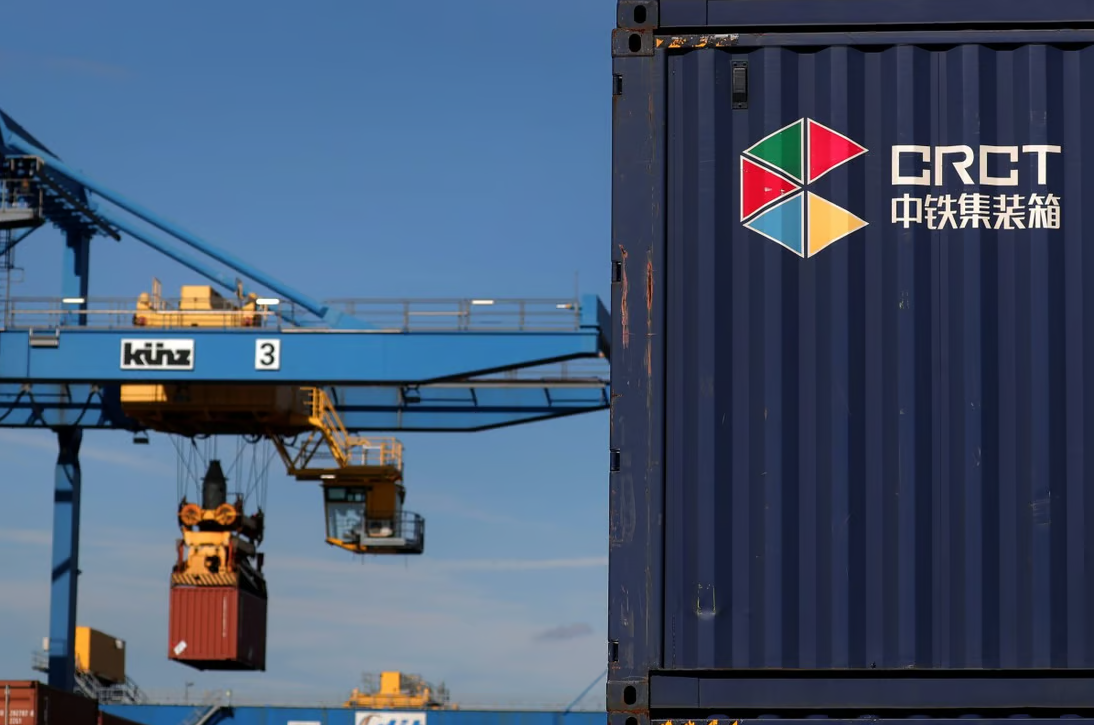Germany's trade surplus unexpectedly widened in April as exports rose and imports fell, a sign that foreign demand for German goods picked up at the start of the second quarter of this year.
The western European country's adjusted trade surplus – the balance of exports and imports of goods – rose to 18.4 billion euros in April, from a revised 14.9 billion euros in March, data from the German Federal Statistical Office (Destatis) showed on June 5.
German exports rose 1.2% in April to 130.4 billion euros from the previous month, reflecting improved global demand for German manufactured goods as Europe's leading economy seeks to emerge from the recession it suffered in the fourth quarter of 2022 and first quarter of 2023.
However, German imports fell 1.7% to €112.0bn – a sign that domestic economic problems may be weighing on the economy.
Europe's powerhouse economy's exports were boosted by shipments to China as the Asian giant reopened from the pandemic, but analysts warned that the boost could be short-lived.
According to Destatis, German exports to China increased by 10.1%, while exports to the US increased by 4.7% and exports to the European Union (EU) increased by 4.5%.

Shipping containers of China Railway Container Transport Corp at the port of Duisport in Duisburg, Germany. Photo: Bloomberg
“The increase was hardly enough to make up for the sharp decline last month,” said Alexander Krueger, chief economist at Hauck Aufhaeuser Lampe Bank.
“It’s a strong start to the second quarter of this year for net exports, but we doubt that it will be enough to boost GDP growth,” said Claus Vistesen, chief eurozone economist at Pantheon Macroeconomics. “The increase in net exports, which would have boosted GDP growth in Q4 2022 and Q1 2023, is now fading.”
Despite April's export surge, the outlook remains bleak for Europe's No. 1 economy.
“The temporary boost to exports to China will fade over time,” ING Global Macro Head Carsten Brzeski told Reuters, adding that exports to China would also be affected by geopolitical changes.
German exports have been extremely volatile since last summer, but the overall trend is downward, not upward, according to ING experts. Trade is no longer the strong, persistent growth driver of the German economy that it once was, but a drag.
Supply chain conflicts, a more fragmented global economy and China's growing ability to produce goods it previously bought from Germany are all weighing on German exports.
In the first quarter of this year, the share of German exports to China fell to 6% of total exports, from nearly 8% before the pandemic. At the same time, however, Germany’s dependence on Chinese imports remains high, as the energy transition is currently impossible without Chinese raw materials or solar panels.
In the very near term, the continued weakness in export orders, the expected slowdown in the US economy (which accounts for around 10% of total German exports), high inflation and high uncertainty will leave a clear mark on German exports.
After a slump in March, German exports are now providing only limited relief to the economy. In fact, it is a very weak recovery and further evidence that trade – the traditional engine of growth for the German economy – is slowing down .
Minh Duc (According to Reuters, ING)
Source





































![[Photo] Prime Minister Pham Minh Chinh chairs Government Conference with localities on economic growth](https://vstatic.vietnam.vn/vietnam/resource/IMAGE/2025/2/21/f34583484f2643a2a2b72168a0d64baa)




























































Comment (0)